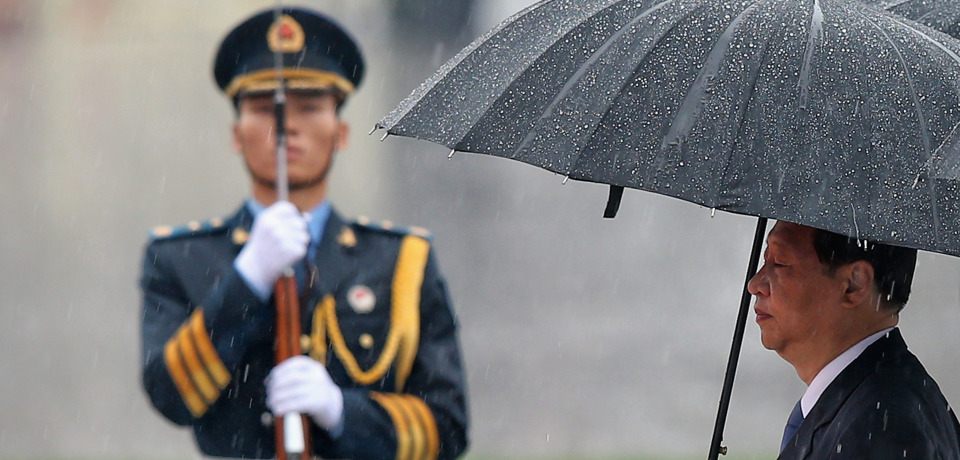At Foreign Policy, the Chinese University of Hong Kong’s Willy Lam discusses signs that Xi Jinping may be planning to extend his rule—formally or otherwise—far beyond a conventional ten-year term. Retired leaders have routinely continued to wield influence from behind the scenes, but Lam proposes that Xi’s protracted tenure could be considerably more active and overt.
According to three sources close to top CCP officials, Xi and several top aides are making plans to ensure that the strongman will rule until at least 2027, when he will still be a relatively sprightly 74 years old.
“Xi’s total dominance of the party-state-military apparatus — and the fact that he has so far not groomed any successor — indicates that he will remain China’s supreme ruler irrespective of whether he gives up his post of CCP general secretary in 2022,” said one of the sources, all three of whom asked to remain anonymous because of the sensitivity of discussing elite politics. While much could happen to derail Xi’s plans — including pushback from rivals, an international or domestic crisis, or health issues, among other things — Xi appears to be planning to stay in office for as long as he can.
Xi’s desire to rule for longer than a decade is best evidenced by his refusal to publicly groom potential successors. In China, leaders are often classified by their generation. Xi, a member of the fifth generation of leadership — a reference to cadres born in the 1950s — has failed to groom potential successors from the sixth or seventh generation. [Source]
The movement of potential leaders up the Party hierarchy may have been complicated by factional politics, Brookings’ Cheng Li suggests to The Australian, adding that it is too early to predict how this would be resolved.
He told The Australian that in late 2012, on the eve of the five-yearly national party congress, “I divided politics in two camps” — the taizidang or princelings and the tuanpai or Youth League followers, broadly led by successive party general secretaries Jiang Zemin and Hu Jintao respectively.
The Politburo Standing Committee, China’s peak decision-making group, that emerged at that congress was no longer balanced, Li said. Of the seven members, six were from the […] princeling faction, and only Li Keqiang, who became Premier, from the tuanpai. [Li has elsewhere described Liu Yunshan, another current standing committee member, as affiliated with the tuanpai][…]
[…] “Xi’s real challenge now is the consolidation of power so that he has his own people within both civilian and military hierarchies. That’s still very slow to take place.”
He pointed out that while Xi’s allies clearly controlled the Politburo and its standing committee, the central committee of the party, comprising 376 people, presented a different picture, with Hu’s tuanpai camp holding a majority. [Source]
See other recent views on Xi’s leadership via CDT, including Evan Osnos’ in-depth profile at The New Yorker and Minxin Pei’s comment that he has proved “the mother of all boat-rockers. The people who picked him must be regretting [it] bitterly.”








